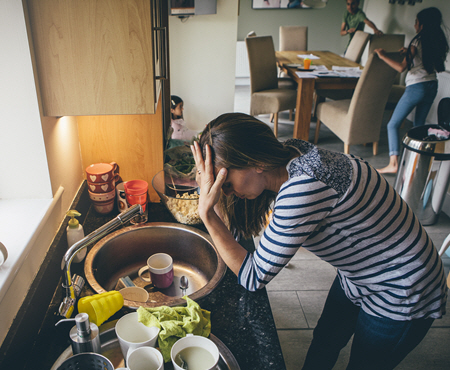 It’s part of us from birth to the end of life…
It’s part of us from birth to the end of life…
Really… family’s the reason that we’re here at all.
A strong, united family has the power to make you feel a sense of connection, belonging, and purpose.
Not having that tight-knit family can leave you feeling alone and unsupported – as if you don’t belong anywhere.
The consequences of not belonging…
This often gets expressed from teenagers by fighting, arguing, breaking rules, mood changes, and decline in academic performance.
By young adults, this often is expressed by using alcohol and other substances to gain a sense of connection by using with others as well as to gain confidence in social interactions.
It also gets expressed by remaining in unhealthy relationships with friends, intimate partners, co-workers, where they give so much of themselves and are mistreated. They feel it’s better to have someone than not to have anyone.
 Family members often have difficulty understanding each other…
Family members often have difficulty understanding each other…
You, the parent, can feel unappreciated and unsupported. It’s like you do everything for your family, and nobody even notices it or understands you.
Parents can have difficulty understanding one another, as it seems that their parenting approaches are clashing.
The young adult can feel disconnected from their whole family – have feelings that parents favor their younger sibling and that they have disappointed their parents. They have isolated from the family which prevents them from feeling even less like part of the family.
If there is a separation and impending divorce, it seems like everyone is mad at each other and has their own perspective of what went wrong and who is to blame.
Siblings can be caught in their own competitiveness and have a hard time in seeing their similarities and overall difficulty in getting along.
“Where did I go wrong… and what can I do to make things better?”
It seems like once your kids entered adolescence, they have rebelled and thrown off the balance in your family. You are realizing that this stage is really hard, and as a parent you need some support in how to best help the family feel aligned again.
If there has been a divorce, it likely really shook your family. Each individual member may not yet have had the chance to process it.
Adjusting to the new family dynamics can be a struggle, as each person tries to figure out where they fit in and how to manage all the changes.
The stressors like change in job, change in schedule, caring for additional family members, the global pandemic, understandably have been incredibly challenging for you all as a family.
If there have been losses, it can be extremely difficult for families – like the loss of a family member, the loss of a friend, the loss of a job – often leading to family members separating from each other.
 Family therapy can help you put things back on track.
Family therapy can help you put things back on track.
During the beginning phase, each member of your family will feel heard. You all will have a chance to give voice to your experience in the family. For most families, it will be the first time they are able to do this. Feeling validated, seen, and heard is a wonderful experience that helps everyone feel supported and connected.
Your family will set joint goals. The act of coming together and setting joint goals is therapeutic, because each individual has a chance to share what they want and learn to compromise as they join together to come up with a solution.
For example, if the parent feels they are doing most of the housework on their own and one child thinks they are doing more than their sibling, a family goal might be to divide the household chores evenly between each family member to share the work load and to help each person feel that it’s fair.
Working toward these goals as a family helps each member learn to work together as a team.
Another goal that the family might have if they all are feeling like they don’t spend enough time with each other is to spend more quality time together. In sessions together, we would decide on a plan, coordinate with everyone’s schedule, and select a specific time and activity. Then the following session, we would follow up on the plan. Having a specific plan, and a person that follows up on the plan, helps in the likelihood that the plan gets accomplished.
We’ll focus on behavior changes during the second phase of family therapy.
That is, we look at the family’s behavior patterns and learn specific skills needed to change the dynamic to one that is more fulfilling to the family unit as a whole. Some of the skills you’ll learn to accomplish this include communication skills, conflict resolution, and coping skills.
Throughout family therapy, there will be several family activities that promote connection and positive shared experiences.
If it feels right with your family, we will create a family timeline – together we map out significant family life events in chronological order on a poster board. Your family will come up with symbols and pictures that represent the events. Through this process, the family learns how to work together. It becomes clear how connected you all are by having a visible tangible item that represents things you all have experienced together.
We may engage in card or board games together, as this helps in relaxing and having some fun together. Often families have deviated from each other and are caught in a negative cycle of conflict – having some time dedicated to fun as a group is alleviating and helps in managing stress.
Some of the activities will be creating things on paper, poster-board, engaging in art activities. This helps in feeling a sense of belonging by creating something together and helps in using the different parts of ourselves that we often ignore.
 Relational assessment and strengths-based perspective…
Relational assessment and strengths-based perspective…
Here’s what that means for you:
Through a relational assessment, your family will be able to see problems as relational rather than individualistic, which reduces distress by seeing the problem outside of oneself.
For example, each family member may feel like they are experiencing pain alone, adding to their feelings of loneliness. Through the work of family therapy, they can see that they aren’t alone in their pain. This helps alleviate the pain, because it is now shared – and they start to feel supported.
A shift in your family starts to be experienced because of my strength-based perspective. At the start of sessions, families are often caught in a negative cycle – the focus has been on all that’s wrong in the family. But by highlighting strengths and pointing out things from a positive perspective, the family also starts to see the good.
When family members start to see each other in a more positive light, their defenses dissipate allowing for more vulnerability and aiding in connection with one another.
Yes, it’s a challenge… but it pays off!
Discussing painful memories and expressing ways we have been hurt, especially to that person that has hurt us, can be very scary and overwhelming. It’s not what we do in our day-to-day lives – it’s way easier to avoid.
The problem is that when things are avoided, they are not dealt with and emerge in various ways.
Change and getting out of your comfort zone can cause pain and discomfort, but once you all persevere and go through it together, you’ll emerge stronger than ever.
It’s time to reconnect your family.
Just think of the benefits…
You’ll all learn how to better handle conflict within the family, which will give you those same skills when needed at work, with friends, or with significant others.
With better conflict resolution tools, you’ll all have improved relationships, less frustration and anger, a greater sense of accomplishment, and less stress.
It’s time to get rid of those feelings of isolation and disconnection… for good!
Start to make positive changes for your family; begin your family therapy by calling me at (213) 915-6372. I offer a free 20-minute phone consultation where I can answer your questions and see if I’m a good fit for your family.

